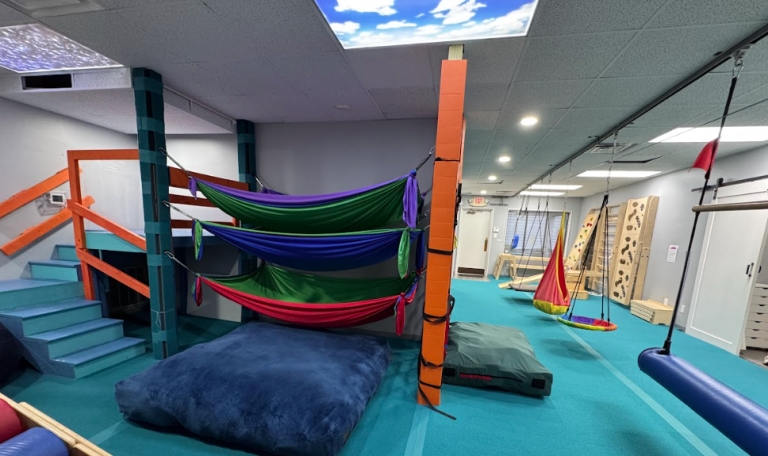Every parent wants their child to thrive, but sometimes children face challenges that require specialized support. Recognizing the signs that your child may benefit from therapy—whether it’s speech therapy, occupational therapy, physical therapy, mental health therapy or ABA therapy—can make a significant difference in their development and quality of life.
This article will help you identify key signs that might indicate your child needs therapeutic support. We’ll also discuss how services like speech therapy in Durham, occupational therapy in Chapel Hill, and other specialties can address these challenges effectively. By the end, you’ll have a better understanding of when and how to seek help for your child.
Signs Your Child May Need Speech Therapy
Speech therapy focuses on helping children develop communication skills, which are essential for their academic, social, and emotional well-being. Here are some signs that your child might benefit from speech therapy:
Delayed Speech or Language Development
If your child isn’t meeting developmental milestones, such as saying their first words by 12-15 months or combining words into phrases by age 2, this could indicate the need for speech therapy in Durham or speech therapy in Chapel Hill.
Difficulty Articulating Words
Children who are hard to understand or consistently mispronounce sounds may benefit from speech therapy to improve clarity and articulation.
Struggles with Social Communication
If your child has trouble understanding social cues, maintaining eye contact, or participating in conversations, speech therapy can help them develop pragmatic language skills.
Stuttering or Voice Disorders
Prolonged stuttering or unusual voice patterns (e.g., very hoarse or high-pitched voices) may require intervention through speech therapy.
Signs Your Child May Need Occupational Therapy
Occupational therapy helps children develop the skills they need for daily activities, from fine motor tasks to sensory processing. Here are some signs your child might benefit from occupational therapy in Durham or occupational therapy in Chapel Hill:
Struggles with Fine Motor Skills
Difficulty holding a pencil, using scissors, or buttoning clothes can indicate a need for occupational therapy to strengthen fine motor coordination.
Delays in Self-Care Skills
If your child struggles with tasks like dressing, eating with utensils, or brushing their teeth, occupational therapy can help them build independence.
Sensory Processing Challenges
Children who are overly sensitive to sounds, textures, or lights—or who seek out excessive sensory input—may benefit from occupational therapy to regulate their sensory responses.
Difficulty with Attention and Focus
If your child has trouble concentrating or managing transitions, occupational therapy can help them develop coping strategies and organizational skills.
Signs Your Child May Need Physical Therapy
Physical therapy focuses on improving a child’s gross motor skills, strength, and mobility. If your child exhibits any of the following signs, they may benefit from physical therapy in Durham or physical therapy in Chapel Hill:
Delayed Motor Milestones
If your child isn’t rolling over by 6 months, sitting independently by 8 months, or walking by 18 months, they may need physical therapy to support motor development.
Coordination or Balance Issues
Children who frequently trip, fall, or struggle with activities like running, jumping, or climbing may benefit from physical therapy to improve balance and coordination.
Muscle Weakness or Abnormal Posture
If your child exhibits muscle weakness, asymmetrical movement patterns, or slouched posture, physical therapy can help them strengthen their muscles and improve their alignment.
Recovery from Injury or Surgery
For children recovering from injuries or surgeries, physical therapy is essential for regaining mobility and reducing pain.
Signs Your Child May Need ABA Therapy
ABA therapy (Applied Behavior Analysis) is a highly effective treatment for children with autism spectrum disorder (ASD) and other behavioral challenges. If your child shows the following signs, they may benefit from ABA therapy in Durham or ABA therapy in Chapel Hill:
Difficulty with Social Interactions
Children with ASD often struggle to form relationships, understand social norms, or engage in reciprocal conversations. ABA therapy can teach them essential social skills.
Repetitive Behaviors or Restricted Interests
If your child exhibits repetitive movements (e.g., hand-flapping, rocking) or has an intense focus on specific topics, ABA therapy can help to identify the triggers for these these self-regulatory behaviors, and ensure that they are practiced safely.
Challenging Behaviors
Frequent tantrums, aggression, or difficulty following directions may indicate a need for ABA therapy to address underlying behavioral issues and teach positive coping mechanisms.
Difficulty with Daily Routines
Children who struggle to adapt to changes in routines or follow multi-step instructions can benefit from ABA therapy to build structure and independence.
Signs Your Child May Need Mental Health Therapy
Mental health therapy can help children to express their thoughts and feelings in a healthy way, or manage existing mental health conditions such as anxiety or depression. The following signs may indicate that mental health therapy in Durham or mental health therapy in Chapel Hill could benefit your child.
Changes in Mood or Behavior
If a mood or behavioral pattern that is unusual for your child — such as withdrawing from friends and family, sadness that lasts over two weeks or excessive tantrums — persists, they may benefit from mental health therapy.
Changes in Sleep
If your child is struggling to sleep or sleeping excessively for their age then this may be an underlying symptom of a mental health condition that therapy can help to address.
Change in Concentration & School Performance
If your child is experiencing a mental health struggle, you might notice a change in their grades, or receive a notice from their teacher suggesting unusual behaviors that can be explored in mental health therapy.
Changes in Eating Habits
Children facing a mental health struggle may restrict or alter their eating habits, be highly specific about food groups they will eat or overeat— mental health therapy can help to determine the emotions fueling these behaviors.
How Therapy Smarts Can Help
If you’re noticing any of these signs in your child, it’s important to seek professional help early. Therapy Smarts offers a range of expert services, including speech therapy, occupational therapy, physical therapy, mental health therapy and ABA therapy in Durham and Chapel Hill.
At Therapy Smarts, our compassionate team creates individualized treatment plans tailored to your child’s unique needs. Whether it’s improving communication through speech therapy in Chapel Hill, enhancing mobility with physical therapy in Durham, or fostering independence with ABA therapy, we’re here to support your child every step of the way.
Don’t wait to get the help your child deserves. Call us today at 919- 378-1340 to learn more about our services and schedule an evaluation. Together, we can help your child turn challenges into triumphs!







